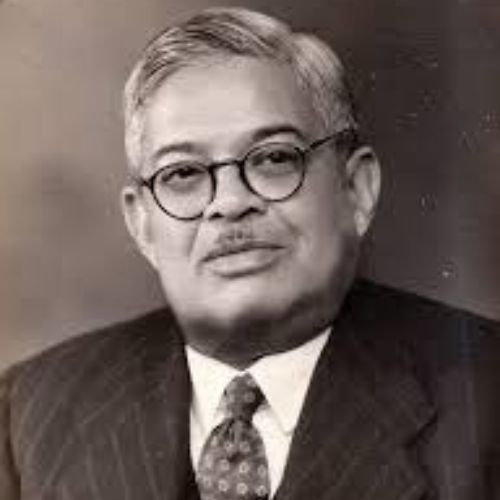Early Life
Jwala Prasad Srivastava was born on 16 August 1889 as the eldest son in a wealthy landowning family in the Basti District of present-day Uttar Pradesh. His father, Raja Janaki Prasad, was Basti’s tax-collector under the British and led an extravagant life. Janaki Prasad was particular that his sons receive the finest education in all aspects of life. Predictably, as the eldest, Srivastava’s childhood was carved along these lines. The lavishness of his growing up years is captured in his daughter, Shakuntala Masani’s description, that Srivastava ‘went to school on an elephant in full regalia’.
His initial schooling was completed in Basti at a local school under a Munshi. But Srivastava showed immense potential that urged the family to send him to Kanpur for a well-rounded education in an English-medium school. After school, he joined Kanpur’s Christ Church College for a Bachelor’s degree in science. Soon after graduation, his father insisted that Srivastava marry and move to England for a training in cotton textiles. Consequently, at the tender age of 16, Srivastava was married to a 14-year-old Kailash and together they were sent to England in the early 1900s.
Srivastava excelled in England academically. He first took a degree in Commerce and Science from the Manchester College of Technology and then stacked up numerous diplomas in the fields of textiles and sciences. After a few successful years in England, he returned with his family to India to care for his sick father.
Role in India’s Independence Movement
On his return to India, Srivastava began working for the government of United Provinces as an industrial chemist. Soon he established himself as Kanpur’s leading industrialist, going from owning dyeing plants to textile mills and eventually owning numerous other thriving businesses across the United Provinces. These included the New Victoria Mills in Kanpur, Raza Textile Mills in Rampur and similar ventures in Gwalior and Bhopal.
Srivastava was a British loyalist and was ideologically close to the Hindu Right. In Craig Baxter’s biography of the Jana Sangh, Srivastava is identified as part of the Hindu Mahasabha’s new leadership in the 1930s that enabled the Mahasabha’s break from Congress and its subsequent growth into an independent organisation.
His allegiance to the British also kept him away from much of the nationalist politics in the 1930s. Instead of boycotting the imperial legislatures, he believed in the incremental reforms introduced by the British that transferred powers to institutions elected with limited franchise.
In line with this belief, Srivastava worked for both the provincial and imperial governments in multiple roles. He represented the Upper India Chamber of Commerce in the provincial Legislative Council between 1926-36. He was made chairman of the United Provinces Simon Committee in 1928. He also held the post of Minister for Education (1931-37), and the Minister for Finance and Industries (1937) in the United Provinces government under Governor Lord Hailey. During this tenure, an attempt was made on his life by a disgruntled voter who had felt he had been unfairly lathi charged during a rally.
In the 1940s, he served as the food member in Viceroy Wavell’s Executive Council, holding this crucial administrative position during the Great Bengal famine of 1943-44.
He was conferred knighthood by the British in 1934.
Contribution to Constitution Making
Srivastava was elected to the Constituent Assembly from the United Provinces on a Congress Party ticket. He did not speak at all during the Constituent Assembly Debates.
Later Contributions
Not much is known of Srivastava’s life after India’s independence. He passed away on 16 December 1954.
- The Indian Year Book 1939-40 Vol. XXVI edited by Francis Low (Bennett, Coleman & Co., Bombay, 1939)
- And All is Said: Memoir of a Home Divided by Zareer Masani (Penguin India, 2012)
- Goras and Desis: Managing Agencies and the Making of Corporate India by Omkar Goswami (Penguin India, 2016)

